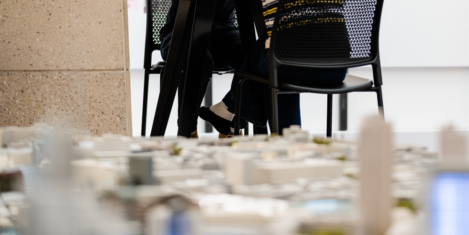July 3, 2023
‘Performative work’ is holding back productivity, poll claims
 A new poll from Slack claims that a focus on performative work, rather than impact, is holding back UK businesses; leading to them falling behind the likes of Germany, France, India and Singapore when it comes to adopting, and gaining, the efficiency benefits of technological advances in AI and automation. Based on findings from 2,000 desk workers in the UK, only 21 percent say their company is using AI tools to improve productivity, compared to 75 percent in India, 35 percent in Singapore, 29 percent in Germany and 23 percent in France. Meanwhile, 37 percent of UK workers say their productivity is measured on visibility (i.e. hours spent in the office or online). As a result, almost one third (30 percent) of the average day is lost to performative work that doesn’t contribute to company goals, but is simply done to appear productive. (more…)
A new poll from Slack claims that a focus on performative work, rather than impact, is holding back UK businesses; leading to them falling behind the likes of Germany, France, India and Singapore when it comes to adopting, and gaining, the efficiency benefits of technological advances in AI and automation. Based on findings from 2,000 desk workers in the UK, only 21 percent say their company is using AI tools to improve productivity, compared to 75 percent in India, 35 percent in Singapore, 29 percent in Germany and 23 percent in France. Meanwhile, 37 percent of UK workers say their productivity is measured on visibility (i.e. hours spent in the office or online). As a result, almost one third (30 percent) of the average day is lost to performative work that doesn’t contribute to company goals, but is simply done to appear productive. (more…)























 I recently received a copy of the book Office Shock by ‘prominent futurists’ Bob Johansen, Joseph Press and Christine Bullen. Described as a guide to creating better futures for working and living, the book imagines the future of work and the workplace. While reading a passage aimed at leaders, I was suddenly aware that a number of the words were simultaneously being spoken aloud in the background. There was a break in the cricket I had been watching that morning (cricket has a few of these breaks!) and the England captain, Ben Stokes, was being interviewed about his own leadership style.
I recently received a copy of the book Office Shock by ‘prominent futurists’ Bob Johansen, Joseph Press and Christine Bullen. Described as a guide to creating better futures for working and living, the book imagines the future of work and the workplace. While reading a passage aimed at leaders, I was suddenly aware that a number of the words were simultaneously being spoken aloud in the background. There was a break in the cricket I had been watching that morning (cricket has a few of these breaks!) and the England captain, Ben Stokes, was being interviewed about his own leadership style. 











